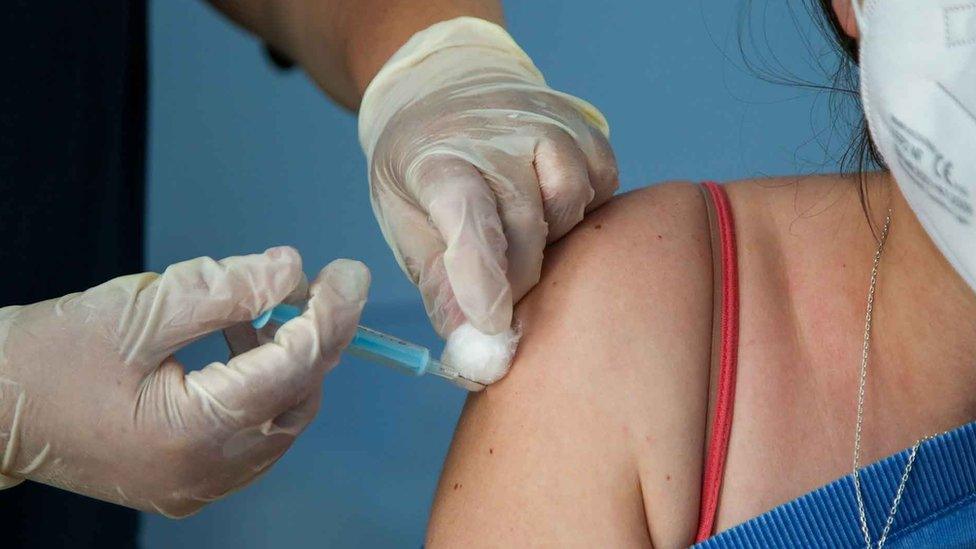First patients given latest Covid-19 booster jabs
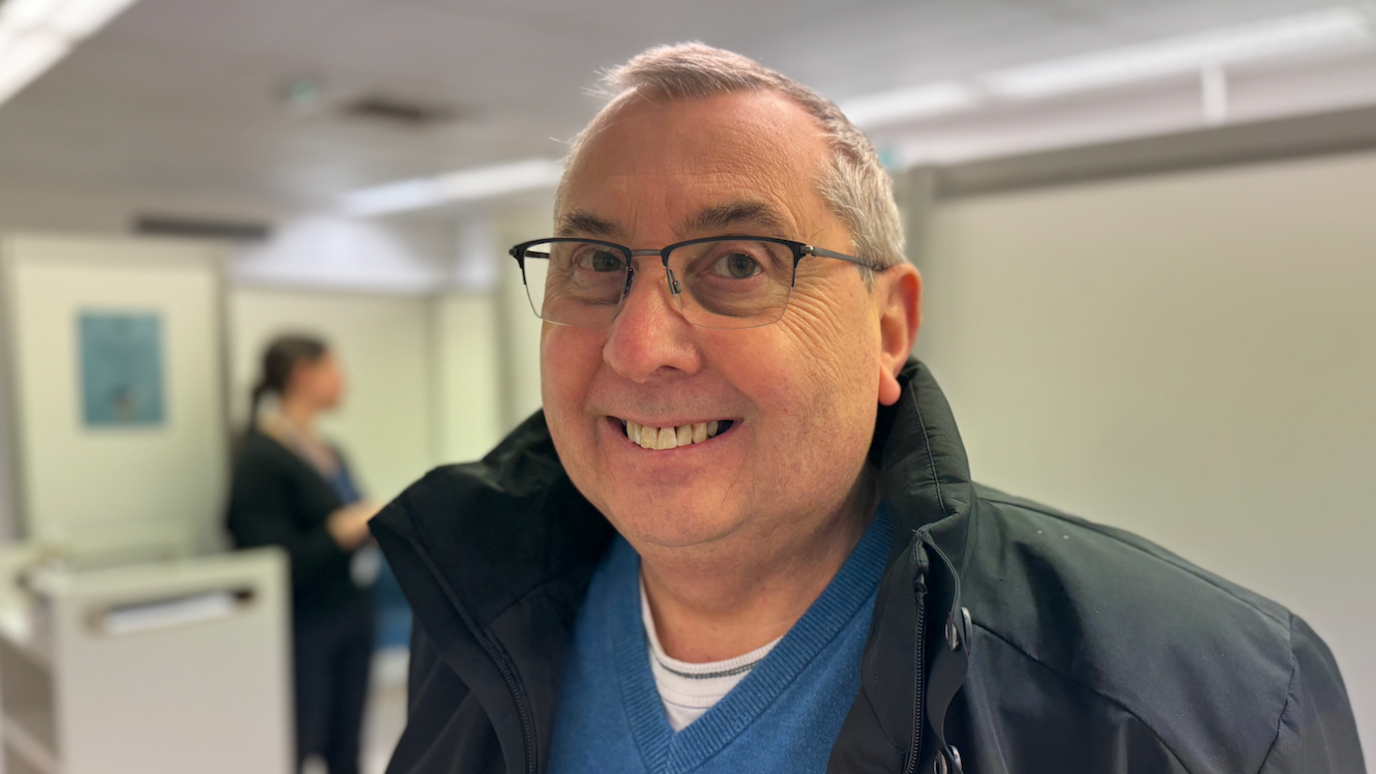
Alan Wilkins, 71, is classed as having a weakened immune system
- Published
A man who was diagnosed with cancer twice and left with a weakened immune system was among the first to receive the Covid-19 booster jab this year.
About 413,000 people, who are either aged 75 and over or immunosuppressed, are now eligible for their next dose in north-east England and north Cumbria.
Alan Wilkins, 71, from County Durham, was invited to come forward for the top-up dose and said he was "doing his bit".
But fewer people were being offered the jab on the NHS because the spring programme was aimed at those most at risk, health bosses told the BBC.
Those eligible for the jab will be contacted by their doctor or GP surgery in the next few weeks to book an appointment. They have until 30 June to receive their vaccine.
People not included in the programme must pay for the jab, at up to £98.95 per dose.
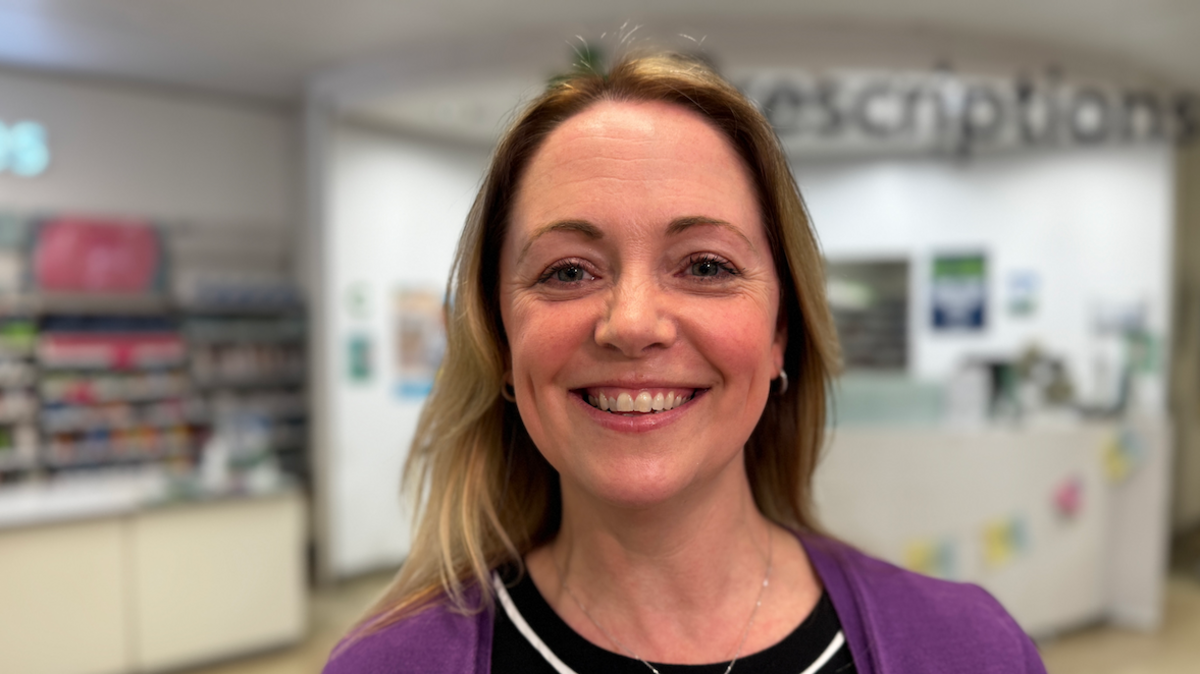
Health boss Catherine Monaghan says Covid-19 can still be a serious illness
Dr Catherine Monaghan, medical director at NHS North East and North Cumbria Integrated Health Board (ICB), said Covid-19 could still be a "serious illness" for some.
She said: "We're really targeting the vaccine against the people likely to become seriously unwell or die from Covid.
"From all the data and all the experience we've got, we understand which patient groups and populations are more likely to become unwell."
Latest figures showed there were 103 people being treated for Covid-19 in hospitals in the region, as of last week.
'Fully booked'
Mr Wilkins had his booster jab at a Boots branch in Durham city centre.
"I think that it protects you and that's what it's all about," he said.
Pamela Liddle was also among one of the first at the site to receive the booster, and added she was "all for" anything "to help keep us safe".
Emma Morris, healthcare partnership manager at Boots, added that the site had been "busy" and that clinics were "fully booked and for the next ten days".
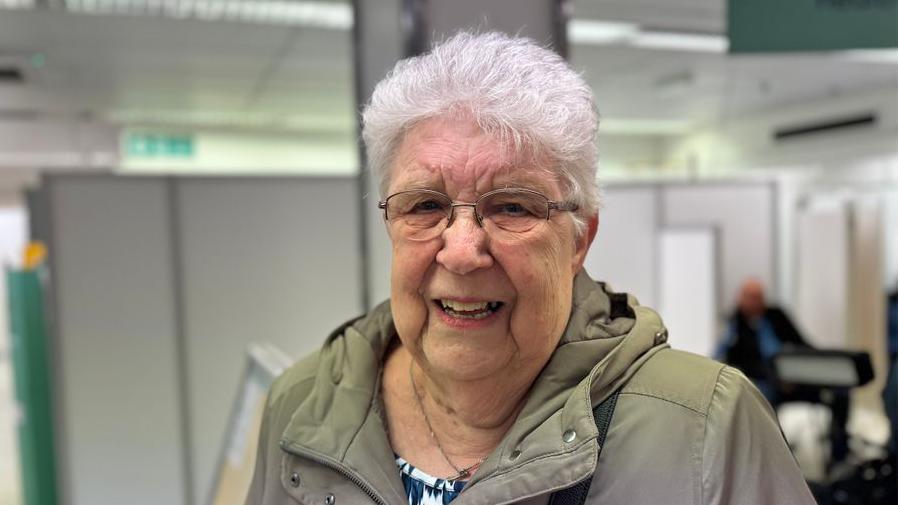
Pamela Liddle was one of those eligible for a Covid-19 booster jab
The Joint Committee on Vaccination and Immunisation (JCVI), which advises the government, previously warned the programme would be "smaller" than previous years.
Covid-19 was a "relatively mild disease” for the majority of people, and the committee was required to assess the cost-effectiveness of all vaccination programmes, a JCVI spokesperson said.
Follow BBC North East on X (formerly Twitter), external, Facebook, external and Instagram, external. Send your story ideas to northeastandcumbria@bbc.co.uk.
Related topics
- Published2 April
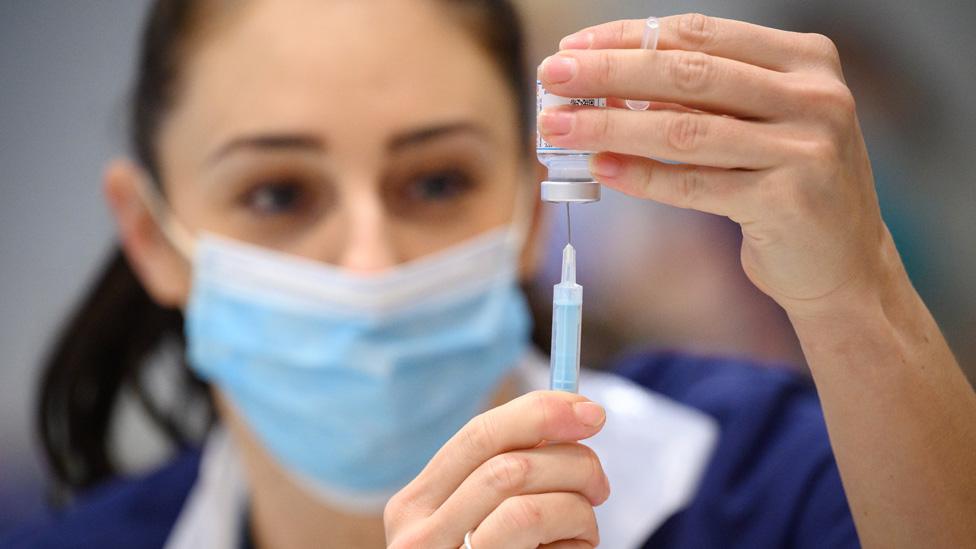
- Published12 April 2024
